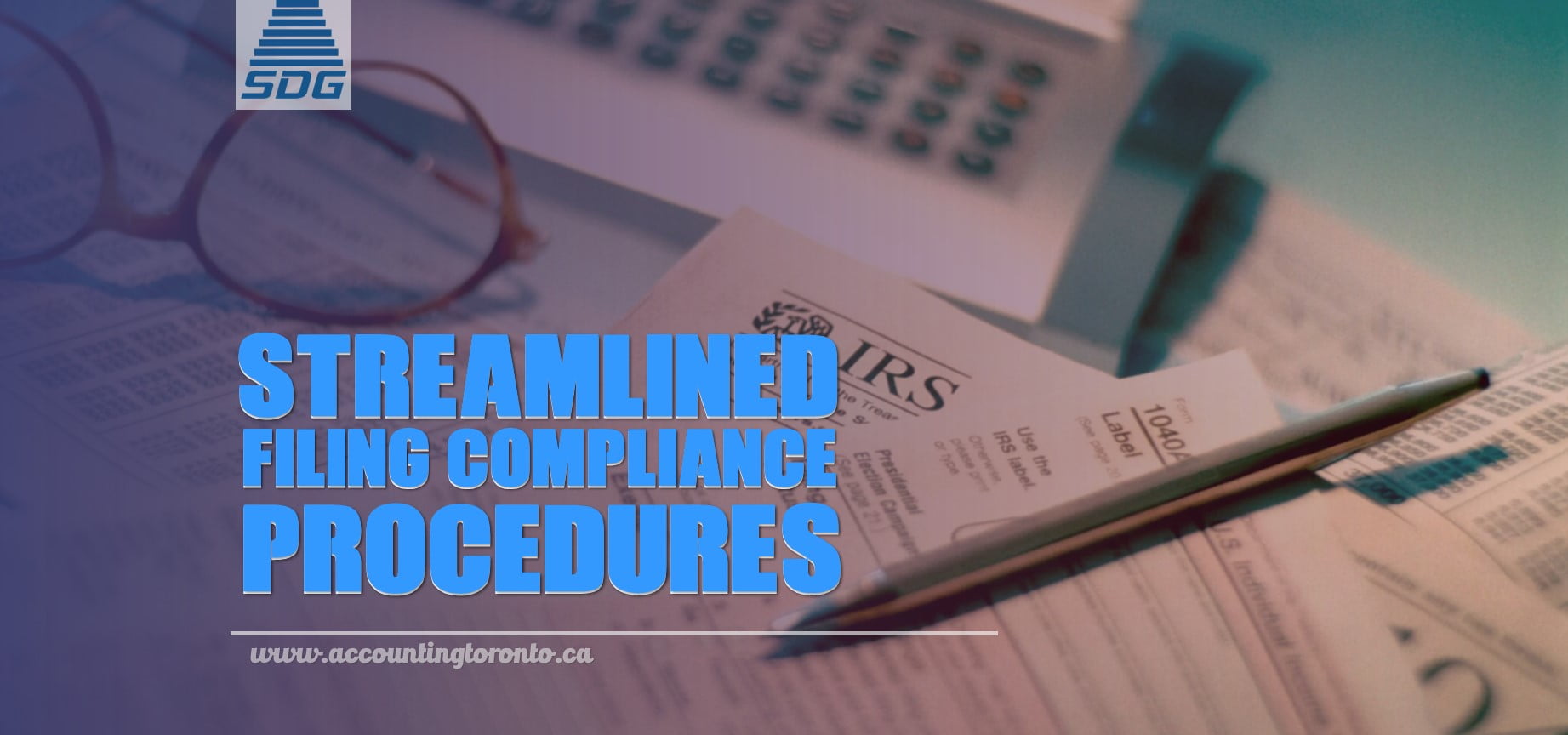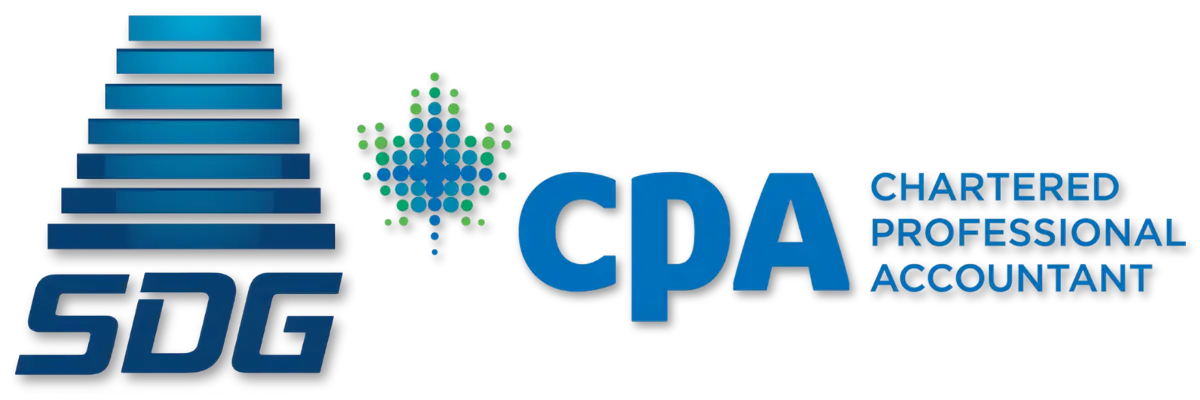
Streamlined filing compliance procedures help expats stay in compliance after making non-willful mistakes. Key concepts include timelines and proactiveness.
When it comes to taxing people living abroad, the government relies on the so-called Foreign Account Tax Compliance Act (FATCA). The law came to life in 2010 when the 111th United States Congress passed it. It demands that all U.S. citizens or permanent residents living in foreign countries disclose all sources of income. One of the main reasons for the act was to combat a high percentage of taxpayers who were not reporting foreign accounts. To simplify the process put forth by the act, the IRS developed streamlined filing compliance procedures and streamlined voluntary disclosure.
What Are Streamlined Filing Compliance Procedures?
Streamlined filing compliance procedures stand for an IRS streamlined program available to non-willful taxpayers living internationally. These are also commonly referred to as streamlined domestic offshore procedures. The term “non-willful” represents those who did not purposely fail to disclose income. Instead, their lack of compliance has to be a byproduct of extenuating circumstances, not reckless disregard. The IRS streamlined program is going to offer a full penalty waiver when the taxpayers provide adequate current and amended tax returns.
The Objective of the IRS Streamlined Program
The main purpose of the streamlined filing compliance procedures or streamlined domestic offshore procedures is to help the IRS improve the tax compliance of expats. Since there are approximately 80,000 IRS workers, there is a serious problem of under-staffing. This is why many uncommon issues tied to international tax are extremely difficult to identify. In order to reduce the number of expats who are not in compliance, the IRS started offering the streamlined procedure. Those who opt to utilize the IRS streamlined program will help the government by increasing tax revenue while enjoying the benefit of waived penalties themselves. So, theoretically, the streamlined procedure is a win-win alternative that facilitates proper compliance as per the Foreign Account Tax Compliance Act.
Who Qualifies for the Streamlined Filing Compliance Procedures?
The first eligibility requirement for the IRS streamlined program boils down to willful conduct. The taxpayer has to certify that prior violations of compliance were not done on purpose. Instead, they could be a consequence of uncommon circumstances, negligence, mistakes, or inadvertence. Any instance of purposely under-reported income, however, will carry an automatic disqualification.
The next requirement is that the taxpayer is not under the current civil examination. If the IRS already initiated an examination, it is too late to file under any streamlined procedure of the streamlined filing compliance procedures. Lastly, every expat who wants to use the IRS streamlined program must have a valid Individual Taxpayer Identification Number (ITIN). United States citizens or permanent aliens can simply use their Social Security Numbers (SSN). Those who do not have an SSN or ITIN must file form W-7 alongside their tax returns in the streamlined filing compliance procedures. Doing so will lead to a new ITIN that will be attached to their tax returns.
Not a Retroactive Solution
It is important to recognize that the streamlined procedure is not a retroactive solution. That means that prior instances of willful nondisclosure cannot be resolved via streamlined filing compliance procedures. So, if a taxpayer purposely under-reported foreign income, they cannot fully waive penalties. This goes back to the first eligibility requirement of streamlined domestic offshore procedures demanding certification of non-willfulness. Obviously, that certification would be invalid when the taxpayer intentionally omitted income to pay less tax.
Offshore Voluntary Disclosure Program versus Streamlined Filing Compliance Procedures
Under FATCA, there was also a so-called Offshore Voluntary Disclosure Program (OVDP). It was a direct opponent of the streamlined procedure as taxpayers could only select one when filing. As of September 28, 2018, however, the OVDP ended and the IRS voluntary disclosure took its place. Therefore, it is important to stay away from a common misconception that expats can still choose one of the two.
The Preparation for Any Streamlined Procedure of the Streamlined Domestic Offshore Procedures
The first step of the streamlined procedure, which is arguably the most important one, is to seek counsel from an experienced professional. Taxes that the expats are responsible for are quite complex and boil down to countless treaties with foreign countries. Additionally, there are various exclusions and credits that help avoid double-taxation. Hence why it may be necessary to seek a Toronto tax professional. The next step is to prepare all tax returns, both originals and amended, for the prior three years. This applies to both streamlined domestic offshore procedures as well as IRS voluntary disclosure candidates.
Expats must file FBARs to verify account balances in foreign banks alongside their tax returns. Doing so ensures the IRS that they have no hidden cash. Besides FBAR, a proper streamlined voluntary disclosure will include all other informational returns. Examples include forms 3520-A, 5471, 5472, 8621, and similar. Filing Form 14653 is also mandatory and crucial as it relates to non-willfulness. In other words, it will certify that the taxpayer mistakenly failed to report income, not on purpose. Finally, all tax payments that are late have to be submitted with any outstanding interest collectible.
Preparation for “Willful” Taxpayers under Streamlined Filing Compliance Procedures
The preparation process for willful taxpayers in streamlined domestic offshore procedures is going to be much different than that of non-willful ones. The reason why is that the non-willful ones can begin by consulting an accountant about the IRS streamlined compliance procedures. Those who willfully under-reported taxes will usually have to seek an attorney. This is because the streamlined filing compliance procedures or streamlined domestic offshore procedures will not apply to them under any circumstances. So, finding a lawyer that can help with the forthcoming civil examination and other legal proceedings is crucial. It is also important to immediately make an IRS voluntary disclosure that will be discussed next.
Learning the New Guidelines for the IRS Voluntary Disclosure
Although the OVDP no longer exists, the IRS recognizes that taxpayers may still want to report non-compliance. A platform for doing so is an IRS streamlined program called the IRS voluntary disclosure. Part nine, section five, chapter eleven of the Internal Revenue Manuals (IRM) cover this provision. Note, however, that there are no guarantees offered here. Unlike the streamlined procedure and OVDP, IRS voluntary disclosure does not provide any type of waiver. Instead, the taxpayers can still be prosecuted to the full extent of the law.
It is common, however, that the IRS suggests no prosecution for those who make a streamlined voluntary disclosure. To actually make the streamlined voluntary disclosure, the taxpayer or their attorney can submit proactive amended returns and letters of explanation. The word “proactive” is extremely important here because any other type of streamlined voluntary disclosure will not count. For instance, making an IRS voluntary disclosure after getting a notice of civil examination is no longer deemed voluntary. Taxpayers in those situations will fall under the non-voluntary disclosure and prosecution is likely to be recommended. Subsequently, the streamlined domestic offshore procedures or streamlined filing compliance procedures will no longer apply.
Preparing for a Streamlined Voluntary Disclosure
Streamlined voluntary disclosure is built on accurate tax returns. Every taxpayer who wants to qualify will have to fill out forms accurately and completely. In translation, reporting of all income is mandatory. Note, however, that illegal income can still be subject to prosecution even after the IRS voluntary disclosure. It is also crucial that the taxpayer is fully aware of their current legal status. For instance, if the IRS began their investigation into the taxpayer’s returns, the streamlined voluntary disclosure will generally not apply. The reason why is that the receipt of the notice for procedures like civil examinations ends eligibility for an IRS voluntary disclosure. Hence why consulting with a tax attorney specializing in international tax should be among the steps.
Streamlined Domestic Offshore Procedures and Timeliness
The bottom line requirement that the IRS embeds into the streamlined domestic offshore procedures is timeliness. Just consider, for instance, the fact that any investigation into the taxpayer’s returns will end their eligibility. The reason why is that the IRS wants to offer people an option to get in compliance as soon as possible. Those who become aware of mistakes or non-compliance should approach the preparation process with timeliness in mind. In other words, contacting a tax accountant and gathering the paperwork should take place immediately. Waiting and hoping that the IRS fails to catch the mistake is an extremely risky strategy that has a high likelihood of prosecution.
While the IRS is seriously understaffed, they employ powerful software that can catch mistakes or non-compliance at any moment. Additionally, they have the right to start a civil investigation years after the tax return was actually filed. So, just because a non-willful taxpayer accidentally omitted income three years ago does not carry an implied penalty waiver. If the IRS determines that they were aware of the mistake and failed to correct it, the taxpayer becomes willful. That brings a higher risk of prosecution, hefty fines, and even jail time.
The information is not intended to constitute professional advice and may not be appropriate for a specific individual or fact situation. It is written by the author solely in their personal capacity and cannot be attributed to the accounting firm with which they are affiliated. It is not intended to constitute professional advice, and neither the author nor the firm with which the author is associated shall accept any liability in respect of any reliance on the information contained herein. Readers should always consult with their professional advisors in respect of their particular situations.
— Sami Ghaith
CPA, CGA, MBA


1 comment on “How to Prepare for IRS Streamlined Filing Compliance Procedures”